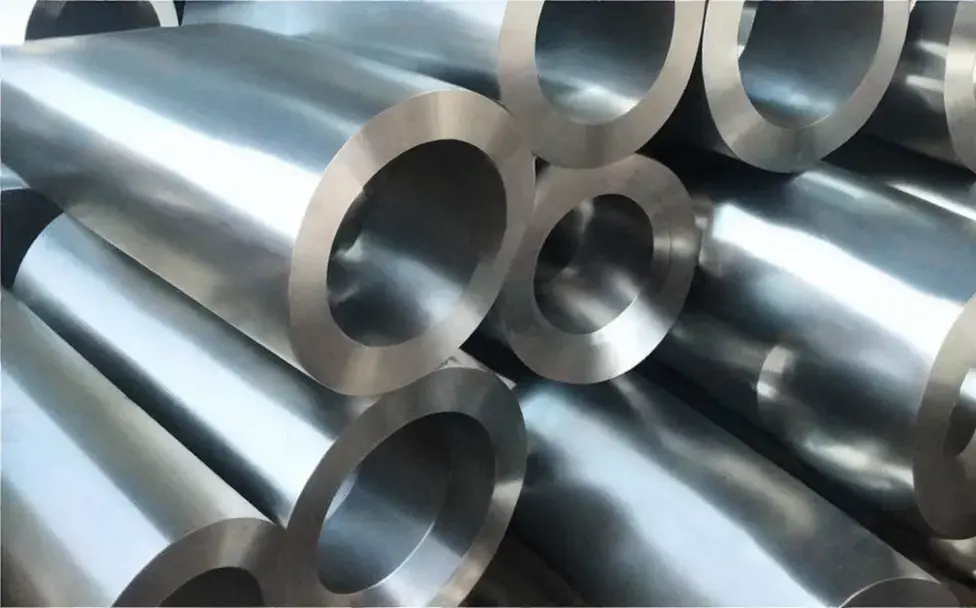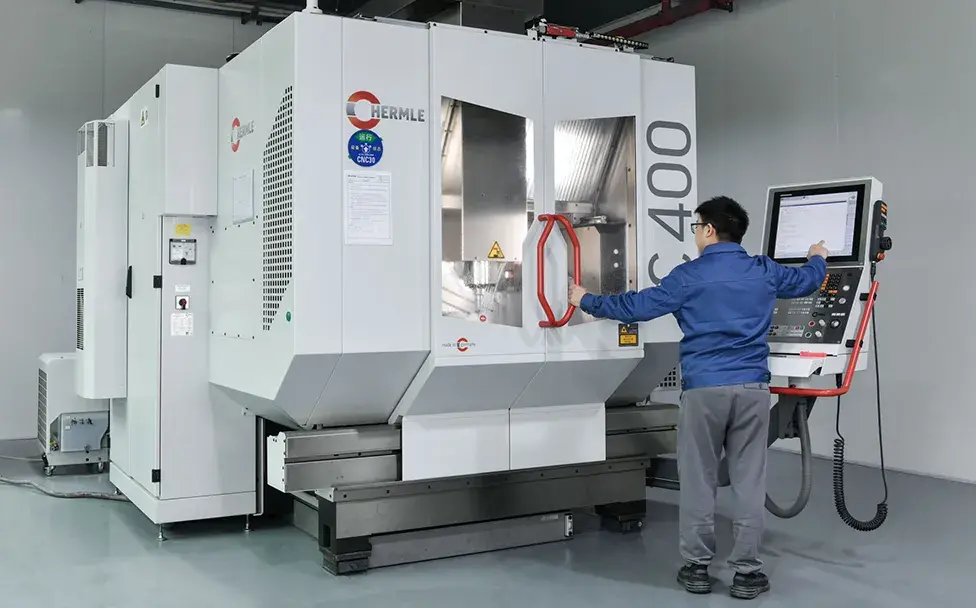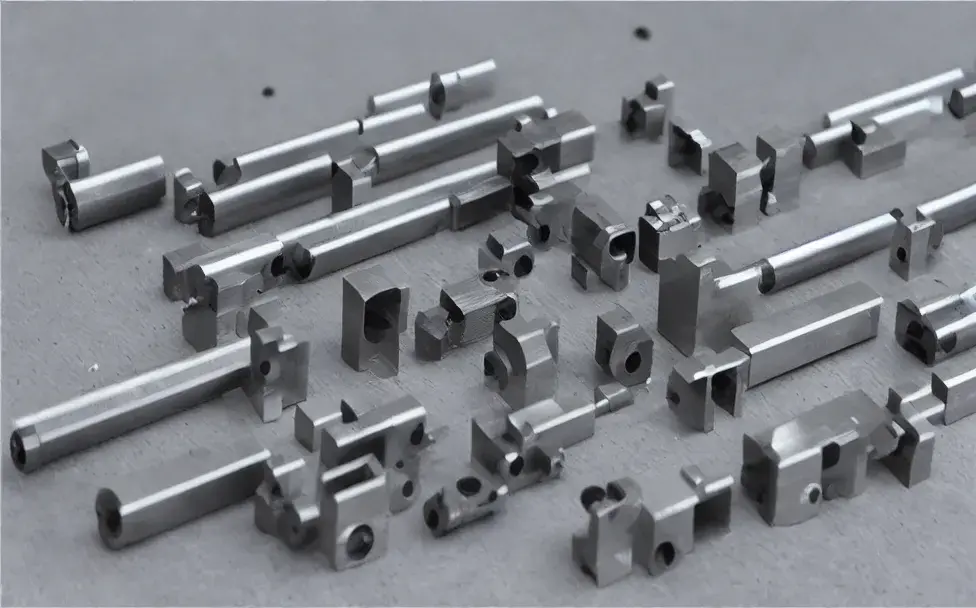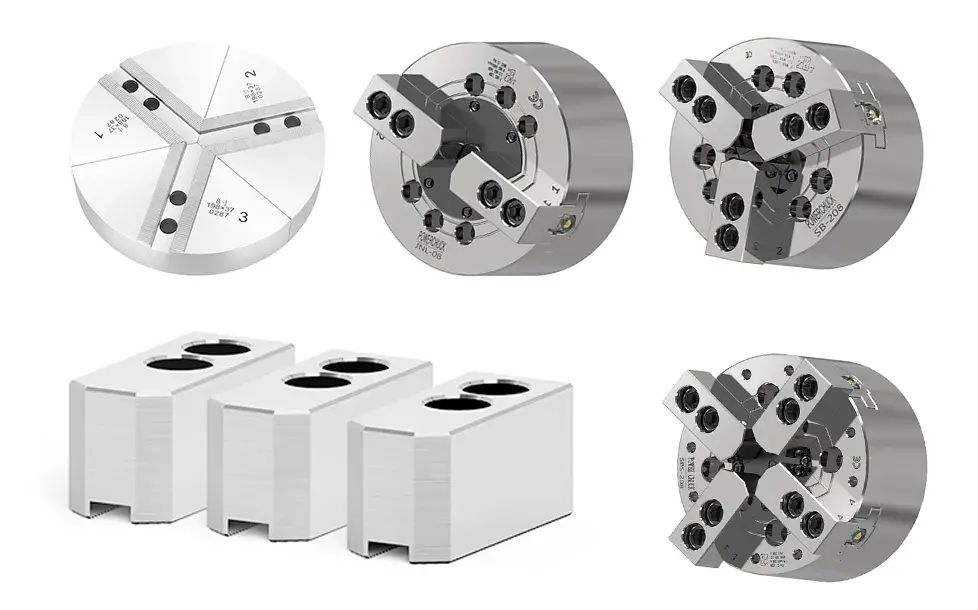Titanium Overview
Titanium is a highly versatile metal known for its strength, durability, and corrosion resistance. It is one of the strongest metals available, making it a popular choice for applications that require high strength-to-weight ratios. Titanium is also biocompatible, which makes it a popular material for medical implants.
One of the challenges of working with titanium is that it is a difficult material to machine. It has a low thermal conductivity, which can cause heat to build up during machining, leading to tool wear and premature failure. Additionally, titanium has a tendency to “work harden,” meaning that it becomes harder and more difficult to machine the more it is worked.
Aluminum Overview
Aluminum is another commonly used metal in CNC machining, known for its light weight, strength, and corrosion resistance. It is a highly malleable metal, making it easy to work with and shape. Aluminum is also a good conductor of heat, which helps dissipate heat during machining.
Compared to titanium, aluminum is easier to machine due to its high thermal conductivity and lower strength. It is also a more cost-effective material, making it a popular choice for applications where cost is a primary consideration.
Titanium and Aluminum: A Comprehensive Comparison of Strength, Weight, and Performance in Various Applications
Titanium and aluminum are two popular metals used in various applications due to their unique properties. In this article, we will take a closer look at the specific characteristics of these two metals and compare them in terms of strength, weight, and performance.
Strength
Titanium is known for its exceptional strength and durability, making it an ideal choice for applications that require high strength-to-weight ratios. In fact, titanium is one of the strongest metals available, with a tensile strength of up to 63,000 psi. It is also resistant to fatigue, making it suitable for use in applications where cyclic loading is present.
On the other hand, aluminum is a relatively soft metal, making it less strong compared to titanium. However, aluminum alloys can be strengthened through a process called heat treatment, which involves heating and cooling the metal to change its properties. Some aluminum alloys, such as 7075 aluminum, can have tensile strengths of up to 83,000 psi, making them suitable for high-stress applications.
Weight
One of the most significant advantages of both titanium and aluminum is their light weight. Titanium has a density of 4.5 g/cm3, making it one of the lightest metals available. Its high strength-to-weight ratio makes it an ideal material for applications where weight is a primary consideration, such as aerospace and automotive components.
Aluminum is also a lightweight metal, with a density of 2.7 g/cm3. It is lighter than steel and copper, making it a popular choice for applications where weight is a concern. Its low density also contributes to its high strength-to-weight ratio, making it a popular choice for high-performance sports equipment.
Performance
Both titanium and aluminum offer excellent corrosion resistance, making them suitable for use in harsh environments. Titanium is particularly resistant to corrosion in saltwater environments, making it ideal for marine applications. It is also biocompatible, making it a popular material for medical implants.
Aluminum is also corrosion-resistant, but it is more prone to corrosion than titanium. However, aluminum alloys can be formulated to improve corrosion resistance, making them suitable for a wide range of applications. Aluminum is also an excellent conductor of heat and electricity, making it a popular choice for heat sinks and electrical components.
CNC Machining with Titanium
When machining titanium, there are several key considerations to keep in mind. First, it is important to use the right cutting tools and machining techniques to minimize heat buildup and tool wear. Diamond-coated tools are often used for machining titanium, as they offer high hardness and wear resistance.
Additionally, CNC machinists may need to adjust their cutting speeds and feeds to prevent excessive heat buildup. Cooling strategies, such as using coolants or compressed air, can also help dissipate heat during machining.
CNC Machining with Aluminum
Compared to titanium, machining aluminum is relatively straightforward. Aluminum is a softer metal, meaning that it can be machined at higher speeds and feeds without generating excessive heat. High-speed machining techniques, such as high-speed milling and turning, are often used to maximize productivity when machining aluminum.
One potential drawback of machining aluminum is that it can be prone to burrs and other surface defects. This can be minimized by using sharp cutting tools and appropriate machining techniques.
Titanium and Aluminum: Wide-Ranging Applications
Titanium Applications:
Titanium is a versatile metal with high corrosion resistance and strength, making it widely used in many industries. The most common industries include aerospace, medical, and military. Its high strength-to-weight ratio makes it an ideal material for designing and manufacturing aerospace and spacecraft, engine components, missiles, and satellites. Additionally, due to its biocompatibility, titanium is also widely used in the medical field as bone implants, artificial joints, and dental implants. Titanium is also extensively used in high-performance sports equipment such as bicycles, golf clubs, and tennis rackets.
Aluminum Applications:
Aluminum is a lightweight, corrosion-resistant, thermally and electrically conductive metal, making it widely used in various industries. The most common applications include the construction, transportation, and packaging industries. Due to its lightweight, aluminum is an ideal material for manufacturing aircraft, automobiles, and rockets. Its excellent thermal and electrical conductivity also makes it a preferred material for producing electrical and electronic devices such as computers, flat-screen televisions, mobile devices, and LED lights. In the packaging industry, aluminum is extensively used for manufacturing food packaging, beverage cans, and pharmaceutical packaging, as it does not affect the taste and quality of food and drugs.
Choosing the Best Metal for CNC Machining: Titanium or Aluminum?
Ultimately, the choice between titanium and aluminum for CNC machining will depend on your specific application requirements. If strength and durability are paramount, titanium may be the best choice. However, if cost and ease of machining are more important, aluminum may be the better option.
When selecting a CNC machining service provider, it is important to choose a company with experience working with both titanium and aluminum. This will ensure that your parts are machined to the highest quality standards and that the optimal machining techniques are used for your specific application.
Conclusion
Titanium and aluminum are versatile metals used extensively in various industries due to their unique properties. Titanium is known for its exceptional strength, durability, and biocompatibility, while aluminum is valued for its lightweight, corrosion-resistant, and electrically conductive properties. These metals have a wide range of applications in fields such as aerospace, medical, military, construction, transportation, and packaging. Choosing the right metal depends on specific project requirements, such as strength, weight, and cost-effectiveness. Understanding the differences between these two metals is essential for making informed decisions and selecting the ideal material for CNC machining needs.



